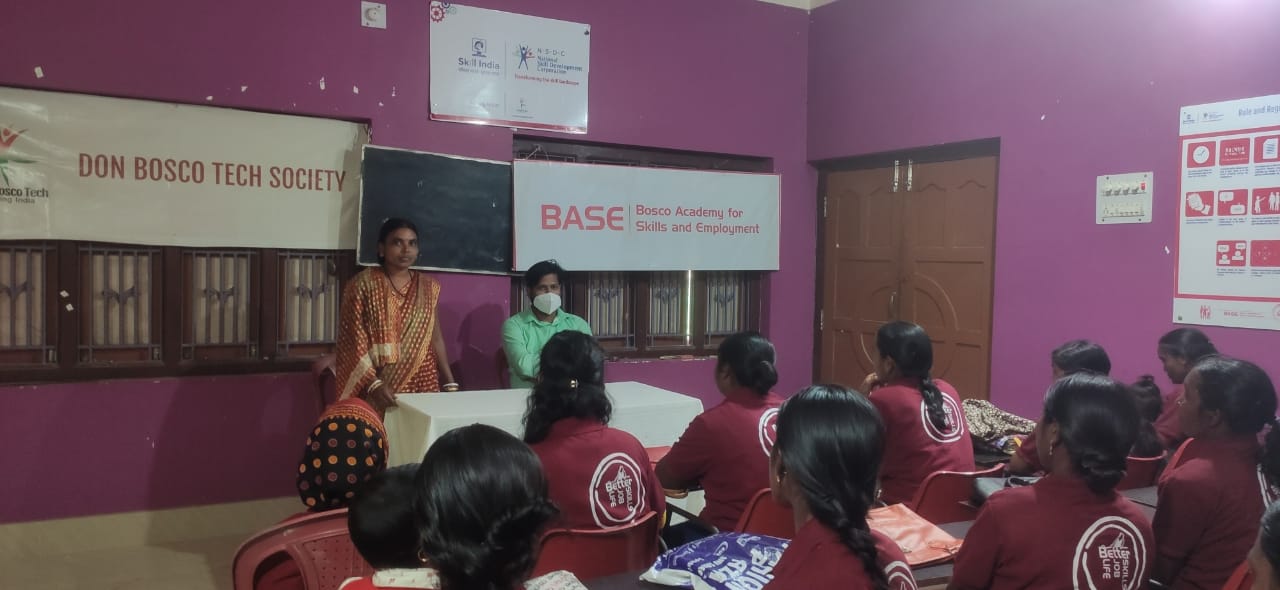Guest Lecture of Mushroom Grower Job Role (Batch - 9) of Accenture 2023-24
09 Jan 2024

Don Bosco Tech Thakurmunda organized a captivating guest lecture event on January 9, 2024, tailored for Batch -9 of Accenture 2023-24, focusing on the Mushroom Grower job role. The event welcomed a distinguished guest, Ms. Jasoda Mohanta, the Field Executive Officer of Tasar & Silk Federation Department of Handlooms, Textile & Handicrafts, Govt. of Odisha. The aim was to offer valuable insights and training to the trainees, particularly on understanding and cultivating mushrooms.
Leading the session was Mr. Jagadish Prasad Swain, the domain trainer for Mushroom Grower, who warmly welcomed Ms. Mohanta. The guest lecturer commenced by elucidating the various types of mushrooms found in India, highlighting their significance as a non-traditional cash crop. Notable varieties cultivated in Odisha include oyster mushrooms, paddy-straw mushrooms, and white button mushrooms.
Ms. Mohanta emphasized the labor-intensive and high-profit nature of mushroom production, showcasing substantial employment opportunities for small farmers, landless laborers, women, and unemployed youth. She underscored the potential of mushroom cultivation in addressing nutritional needs, tackling malnutrition, and providing livelihoods to marginalized communities.
Delving into the intricacies of mushroom cultivation, Ms. Mohanta emphasized the accessibility of primary inputs—agro-wastes and labor—in India. She stressed the adaptability of mushrooms to produce protein-rich food from various agro-wastes or forest residues without composting. Key strategies discussed included the diversification of mushroom varieties according to natural conditions to minimize energy costs.
Ms. Mohanta outlined crucial cultural practices for successful mushroom cultivation, emphasizing the importance of maintaining homogeneity, hygiene, and humidity. She encouraged trainees to consider mushroom cultivation as a part-time venture with minimal maintenance, fostering opportunities for sustainable small farming systems involving women, elders, and children.
The guest lecture session provided an invaluable learning experience for the trainees, facilitating a meaningful exchange of real-world insights with the expert. Ms. Mohanta shed light on ongoing programs aimed at enhancing female empowerment through mushroom production, imparting farming skills, financial independence, and self-respect.
Concluding the session, Ms. Mohanta addressed queries from the participants and advised them to consider mushroom cultivation as a viable business opportunity. The event wrapped up with heartfelt thanks extended to Ms. Mohanta by the support domain trainer, Mrs. Rasmita Behera, recognizing her dedication to educating the students and contributing to their brighter future.